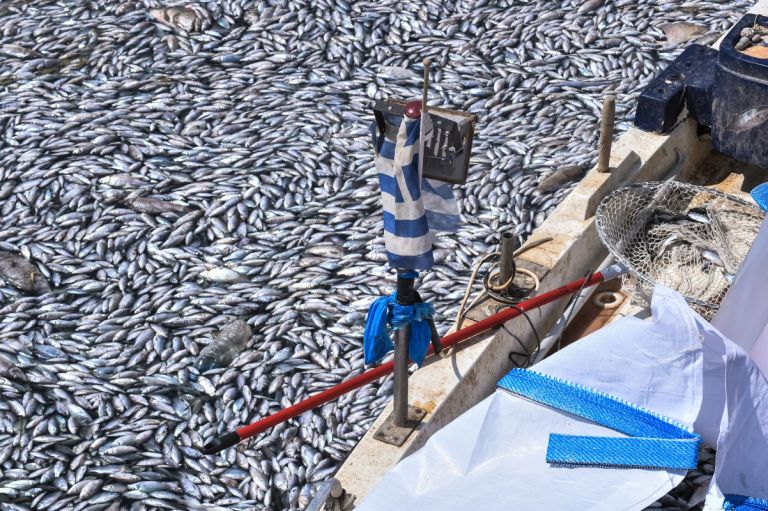Dead Fish Blanket Greek Tourist Port After Massive Flooding

Πηγή Φωτογραφίας: Eurokinissi (Αρχείου)//Dead Fish Blanket Greek Tourist Port After Massive Flooding
Authorities in Greece have begun the massive task of removing hundreds of thousands of dead fish that have flooded a tourist port in the central city of Volos. These fish were displaced from their freshwater habitats due to catastrophic flooding last year and have now washed up in the port, creating a daunting environmental challenge.
The dead fish have formed a silvery layer across the water, accompanied by a pungent odor that has caused concern among local residents and officials. Efforts are underway to clear the area before the smell spreads to nearby restaurants and hotels, which could severely impact local tourism.
In just 24 hours, over 80,000 pounds of dead fish were collected by trawlers dragging nets through the water, later dumping their haul into waiting trucks. Stelios Limnios, a city council member, noted that the problem extends across several kilometers, affecting not only the coastline but also the center of the Pagasetic Gulf, an area lined with holiday homes.

Volos Mayor Achilleas Beos described the situation as “unbearable,” expressing frustration at the government’s delayed response. He warned that the rotting fish could lead to an environmental disaster, threatening other species in the area. During a press conference, Beos criticized government agencies for failing to install a protective net at the mouth of the river leading into Volos, which could have prevented the fish from being swept into the sea and killed by the saltwater.
Experts attribute the problem to last year’s historic floods in the Thessaly plain, which forced the fish out of their natural habitats. Without the protective measures in place, the fish were doomed upon reaching the saltwater.
The environment ministry has yet to comment, but local prosecutors have launched an investigation into the handling of the disaster.
This incident is the latest in a series of extreme weather events in Greece, which scientists increasingly link to climate change. The country has faced rising temperatures and unpredictable rainfall, leading to both wildfires and severe flooding.
The impact on local businesses has been severe. Dimosthenis Bakoyiannis, who owns a beachside restaurant six miles from Volos, reported an 80% drop in turnover this summer as tourists stayed away after the flooding. “Closing the barrier now doesn’t help,” he said. “It’s too late; the tourist season is over.”
Πηγή: GCT–ARTHUR G
Διαβάστε όλες τις τελευταίες Ειδήσεις από την Ελλάδα και τον Κόσμο






Το σχόλιο σας